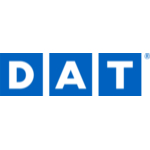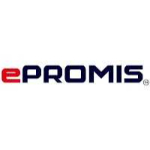List of Best Transportation Management System
Showing 10 of 172 productsRoute4Me is your ultimate route planning and optimization solution, designed to simplify your delivery and field service operations. Our innovative software offers customizable is a routing options to save time, resources, and costs. Say goodbye to m...Read Route4Me Reviews
Freightview is a top-rated software that simplifies freight management for businesses of all sizes. With its user-friendly interface and powerful features, managing freight shipments has never been easier. Say goodbye to manual processes and hello to...Read Freightview Reviews
Samsara is a software that offers an all-in-one solution for managing and optimizing your fleet, assets, and workforce. With its user-friendly interface, real-time data tracking, and customizable features, Samsara simplifies complex processes and hel...Read Samsara Reviews
Rose Rocket is not your average transportation management software. Designed specifically for the needs of modern trucking companies, Rose Rocket streamlines operations, maximizes efficiency, and simplifies tasks for dispatchers and drivers. With its...Read Rose Rocket Reviews
Descartes Dock is a software designed to streamline and simplify your business operations. With its advanced features and user-friendly interface, Descartes Dock is the solution youve been searching for. Say goodbye to complex processes and hello to...Read Descartes Dock Reviews
Powerfleet is a leading software solution that provides businesses and organizations with advanced fleet management capabilities. With its innovative technology, Powerfleet offers real-time tracking, accurate reporting, is a operations management for...Read Powerfleet Reviews
DAT Freight is a freight management software that simplifies logistics, optimizes efficiency, and promotes seamless transportation operations. With its user-friendly interface features, DAT Freight is a solution for all your freight management needs...Read DAT Freight Reviews
Revenova is the powerful solution at your fingertips. Streamline your logistics and transportation operations with our innovative software. Say goodbye to inefficiencies and hello to optimized processes. Experience a new level of efficiency and succe...Read Revenova Reviews
ePROMIS ERP is a is a business management software that is designed to help companies of all sizes streamline their operations and achieve their goals. With its user-friendly interface features, ePROMIS ERP is the perfect solution for enhancing produ...Read ePROMIS ERP Reviews
Sunrise Transport is a trusted transportation company that offers exceptional services to individuals and businesses alike. With a wide network is a operations, we ensure timely and safe delivery of goods and passengers. Our commitment to excellence...Read Sunrise Transport Reviews
- What Is Transportation Management System?
- Top Reasons Why Businesses Need Transportation Management System?
- What are the top Key Features of Transportation Management System?
- What Are the Top Benefits of Transportation Management System?
- What Are the Steps to Choose the Right Transportation Management System?
- What Are the Types of Transportation Management System for Different Industries?
- What Are the Technology Trends for Best Transportation Management System?
- What Are the Deployment Options for Transportation Management System?
What Is Transportation Management System?
The Transportation Management System is a software application primarily utilized by transportation businesses to enhance the efficiency of their company operations. The technology has the capability to be utilized for a diverse range of activities, including the monitoring of shipments, the administration of vehicle fleets, and the organization and supervision of deliveries.
In a broad sense, the TMS System streamlines and automates various facets involved in the administration of a transportation enterprise. Commonly seen functionalities in this system encompass automated dispatching, GPS monitoring, electronic invoicing, customer tracking, delivery route optimization, and fleet management.
This solution facilitates the efficient coordination of tasks for firms and drivers, resulting in cost savings on gasoline and supplies, as well as the ability to monitor operations in real time. The software is commonly hosted on cloud servers and can be accessed by either a mobile application or a web-based interface.
The system facilitates the convenient retrieval and observation of significant data across many channels, encompassing customer orders, driver tracking, and delivery status, enabling managers to efficiently access and analyze such information. This facilitates their ability to promptly make judgments and implement them.
Additionally, the TMS software offers a convenient method for generating comprehensive reports and doing an analysis of business performance. In the realm of transportation, dispatch software possesses significant value due to its capacity to optimize operations, monitor deliveries, enhance customer service, and augment efficiency. In alternative terms, it assists transportation enterprises in optimizing their resources while delivering the most optimal service.
Top Reasons Why Businesses Need Transportation Management System?
1. Automation of dispatch processes: The Transportation Management System facilitates the automation of routine processes, including but not limited to scheduling, route planning, tracking, invoicing, and client management.
2. Increased efficiency and productivity: The implementation of automation in repetitive operations and processes has been shown to enhance operational efficiency and mitigate personnel expenses.
3. Improved customer service: The implementation of a Transportation Management System facilitates the dissemination of client notifications, consequently providing them with timely updates regarding the status of their cargo transportation and affording them the capability to track the advancement of such transportation.
4. Automated route optimization: The implementation of a TMS transport management system has the potential to enhance route optimization, resulting in cost reduction and improved operational efficiency.
5. Automated invoicing: The utilization of TMS system software can automate the invoicing procedure, thereby guaranteeing the precision of payments and their timely delivery.
6. Increased driver visibility and communication: The Transportation Management System can establish real-time communication channels with drivers, enabling the provision of orders and customer feedback regarding their trips.
7. Advanced reporting capabilities: Transportation Management System TMS software possesses the capability to generate comprehensive reports that may be utilized to enhance operational efficiency.
8. Improved safety and compliance: The use of an Advanced top transportation Management system can effectively facilitate adherence to safety standards, including but not limited to speed limits and Electronic Logging Devices (ELDs).
9. Automated order dispatch: The implementation of an automated Transportation Management System can effectively eliminate errors resulting from manual processes, hence enhancing operational efficiency.
10. Enhanced fleet management: The implementation of a TMS system software offers a comprehensive analysis of fleet performance and usage, enabling dispatchers to enhance fleet management practices and augment profitability.
11. Automated tracking: The utilization of top TMS systems enables the provision of real-time tracking capabilities for cars and shipments, hence facilitating the process of locating and recovering lost products.
12. Reduced fuel consumption: The implementation of automatic route optimization systems guarantees that cars can select the most optimal routes, resulting in a reduction in fuel expenses.
13. Improved collaboration: The best transportation management software facilitates collaboration among drivers, customers, and dispatchers, hence promoting alignment and shared understanding among all stakeholders.
14. Automated notifications: Dispatchers can provide automatic notifications to consumers, thereby providing them with timely information regarding delays, updates, and other significant notifications.
15. Improved load capacity: The implementation of a top transportation management system has the potential to enhance the efficiency of truck use through the facilitation of load capacity management by dispatch personnel.
What are the top Key Features of Transportation Management System?
The top key features of the best Transportation Management Systems are:
1. Vehicle Tracking: Vehicle Tracking enables customers to determine the geographical location and continuously track their automobiles from any given point, with the information being updated in real-time. This platform assists users in enhancing the efficiency of their fleet operations by offering real-time data on driver and vehicle whereabouts, fuel usage, and driving behaviors.
2. Route Planning and Optimization: Users can effectively strategize and enhance their route planning by taking into account predetermined variables such as intersections, cargo weight, and delivery schedules.
3. GPS Navigation: This functionality facilitates efficient navigation for vehicles by minimizing the number of turns and detours required to reach their intended location promptly.
4. Truck System: The aforementioned system streamlines the procedures involved in generating and transmitting quotations, allocating tasks to drivers, automatically arranging work shifts, and monitoring the duration of deliveries.
5. Scheduling & Reporting: This functionality facilitates users in monitoring the performance of drivers and accessing comprehensive insights about key performance parameters.
6. Driver Management: This functionality facilitates users in efficiently managing their drivers and their corresponding cars. Additionally, it aids in the expeditious recruitment of proficient drivers and the effective management of their contractual agreements.
7. Payment Processing: This feature enhances the payment process for both consumers and drivers by providing safe payment solutions that incorporate comprehensive reporting features.
8. Integration Capabilities: This functionality enables the integration of transport dispatch software with other systems, such as accounting or ERP systems, to enhance operational efficiency.
What Are the Top Benefits of Transportation Management System?
1. Increased Efficiency: The implementation of a TMS System facilitates the optimization of truck-related processes, including routing and delivery operations. This integration enhances the overall efficiency of all stakeholders involved in the transportation system.
2. Optimized Routes: The implementation of route optimization within the TMS software facilitates the generation of optimal delivery routes, hence leading to enhanced delivery efficiency and reduced operational expenses.
3. Automated Processes: The best transportation management software serves to automate and optimize various operations, thereby removing the need for manual data entry and facilitating expedited decision-making.
4. Improved Safety: The implementation of a top transportation management system can provide valuable support in the area of route planning, thereby facilitating the selection of the safest and most efficient delivery routes for drivers.
5. Real-Time Tracking: The utilization of real-time tracking facilitates enhanced visibility and awareness of fleet vehicles by dispatch and delivery teams, ensuring constant monitoring capabilities.
6. Forecasting: The implementation of delivery forecasting enables the Transportation Management System to proactively predict future demand and strategically allocate resources to enhance operational efficiency.
7. Digital Records: The implementation of a TMS management system enables the automation of documentation processes, hence removing the need for manual record-keeping.
8. Resource Management: The best transportation management system is a software application that facilitates the efficient management of various resources involved in truck operations. These resources encompass vehicle standards, dispatch employees, and delivery equipment.
What Are the Steps to Choose the Right Transportation Management System?
1. Analyze the organization: To ascertain the most suitable the best transportation management software for your firm, it is imperative to consider the size and extent of the organization's transportation services.
2. Research and compile: The user should seek software suppliers that offer a wide range of features and capabilities, competitive pricing, and dependable customer care and support.
3. Evaluate the features and functionality: It is important to thoroughly evaluate and analyze all the features and functionalities encompassed inside each bundle, alongside any distinctive attributes that may offer advantages to your firm.
4. Test the Truck Management System: It is advisable to conduct a preliminary evaluation of the software on a restricted basis before making a substantial commitment to get the whole edition of the product.
5. Client references: Engage in discussions with other firms that have utilized the program to gain insights into its potential applicability to your context.
6. Investigate long-term cost: To obtain a precise assessment of the long-term maintenance expenses for the program, it is advisable to take into account the anticipated costs over three to five years.
7. Choose the software: Once the research process and software package testing have been completed, it is imperative to ensure that the selected best transportation management software adequately fulfills the requirements of the firm.
What Are the Types of Transportation Management System for Different Industries?
Transportation Management System encompass software solutions that are specifically developed to aid organizations across many industries in effectively managing and enhancing the efficiency of their trucking operations. TMS systems can enhance operational efficiency by automating processes like as route planning, vehicle tracking, driver management, and other related functions. Various sectors have distinct requirements, necessitating the development of diverse Transportation Management Systems that are specifically designed to cater to these individual needs. Various sectors utilize a range of Transportation Management Systems that are prevalent in contemporary practice.
- Fleet Management System: The Fleet Management System (FMS) is a multifunctional tool that finds use across diverse sectors such as logistics, construction, and delivery services. The provided functions encompass GPS tracking, maintenance scheduling, fuel management, and driver performance monitoring, which are implemented to enhance operational efficiency and mitigate operating expenses.
- Logistics and Transportation Management System: The implementation of a Logistics industry and TMS System is crucial for organizations operating in the logistics and transportation industry. The utilization of route optimization, load planning, real-time tracking, and cargo visibility contributes to the facilitation of timely deliveries and cost savings.
- Construction Fleet Management System: The implementation of a Construction Fleet Management System is crucial for construction management organizations due to their distinct requirements, which encompass the effective management of specialized equipment and the monitoring of off-road vehicles. Construction fleet management systems offer a range of functionalities that facilitate the monitoring of equipment, maintenance activities, and the coordination of job sites.
- Waste Management System: The efficient management of garbage necessitates the utilization of specialized systems by waste management businesses. These systems are designed to optimize the collection routes of waste, monitor the status of bins, and effectively arrange disposal activities. These solutions have the potential to decrease fuel usage and enhance service efficiency.
- Food and Beverage Distribution System: The food and beverage distribution system heavily relies on the Transportation Management System as a means to ensure the preservation of product quality and safety during the transportation process. The major aspects of the system include temperature monitoring, delivery scheduling, and compliance tracking.
- Retail and E-commerce Delivery System: The retail and e-commerce sectors employ the best TMS software to enhance last-mile delivery optimization, inventory management, and customer communication. Furthermore, these systems have the capability to seamlessly interact with e-commerce platforms, facilitating efficient order processing.
- Cold Chain Management System: The utilization of cold chain management systems is crucial for industries such as pharmaceuticals and healthcare, as it guarantees the secure transportation of goods that are sensitive to temperature. These systems are designed to continuously monitor temperature conditions, issue alarms in the event of any deviations, and keep records to ensure compliance with relevant regulations and standards.
- Agriculture and Farming Fleet Management: Agricultural enterprises employ fleet management systems to effectively oversee their farming machinery and vehicles. These systems facilitate the optimization of planting, harvesting, and crop transportation activities.
- The Public Transportation Management System: is utilized by public transportation companies to effectively manage various modes of public transit, such as buses, trams, and other similar vehicles. They provide support in the areas of route planning, passenger tracking, and scheduling.
- Mining Fleet Management System: The mining sector uses fleet management systems to effectively oversee and control heavy machinery, enhance mining activities, and uphold the well-being of both employees and equipment.
- Oil and Gas Field Logistics: The oil and gas sector uses a Transportation Management System to facilitate logistics, supply chain management, and the monitoring of specialized equipment utilized in drilling, extraction, and distribution processes.
- Government and Municipal Fleet Management: Government and municipal fleet management systems are employed by governmental agencies and municipalities to effectively oversee a diverse array of vehicles, encompassing police cars and garbage trucks, to enhance operational efficiency and minimize expenses.
The aforementioned instances represent a limited selection of the best transportation management systems employed across various industries. Every system is customized to address the unique requirements and obstacles of the corresponding industry, enabling enterprises to enhance their transportation operations and attain enhanced effectiveness and financial benefits.
What Are the Technology Trends for Best Transportation Management System?
The present study outlines the prevailing technology trends in the realm of Transportation Management Systems.
1. Automated Routing & Scheduling - The utilization of automated routing and scheduling software facilitates the expeditious and optimized allocation of drivers, resulting in enhanced efficiency and cost-effectiveness for dispatch operations.
2. Mobile Application Integration - The incorporation of mobile technology allows transporters to monitor their shipments in real time and maintain awareness of the current status of the delivery. The integration of mobile applications also enables clients to avail themselves of adaptable and convenient ordering procedures, hence enhancing their overall customer experience.
3. Real-Time Tracking - Real-time tracking technologies facilitate the monitoring of transportation fleets by dispatchers. This provides the users with current information regarding the locations of drivers and their shipments.
4. Big Data Analytics - The utilization of big data analytics enables dispatchers to monitor consumer behavior and make predictions regarding future delivery patterns. The analysis of client data allows dispatchers to enhance the efficiency of delivery routes.
5. Driver Safety Optimization - Driver safety optimization tools assist dispatchers in ensuring that drivers are operating their vehicles safely and efficiently. This aids individuals in mitigating avoidable mishaps and minimizing potential hazards.
What Are the Deployment Options for Transportation Management System?
The deployment choices for the TMS software may exhibit variability contingent upon the scale and objectives of the transportation fleet. In the realm of Transportation Management Systems, it is commonly observed that there exist three fundamental categories of deployment alternatives.: cloud-based, on-premises, or hybrid.
Cloud-based deployment is widely preferred by transportation fleets due to its convenience and cost-effectiveness. The software vendor assumes responsibility for server management and maintenance, resulting in minimal initial expenses. Furthermore, due to their web-based nature, cloud-based solutions enable fleets to conveniently access the Transportation Management System using any internet-enabled device.
On-premises implementation refers to the practice wherein the transportation fleet assumes responsibility for hosting and managing the backend hardware and software components of the Transportation Management System internally. This feature can provide benefits for fleets that desire to retain complete authority over their data and operational activities. This particular mode of deployment may also result in increased initial expenses as fleets bear the responsibility for procuring and maintaining the server infrastructure.
The hybrid deployment model integrates the advantages of both cloud-based and on-premises installations. In most cases, fleets choose a cloud-based solution provided by a software provider to implement their TMS transport management system. However, they may also utilize in-house servers to achieve complete customization of their Truck Management System. Organizations that choose a hybrid strategy in their fleet management strategies often achieve cost reductions related to on-premises deployment and intricate setup, while simultaneously retaining complete authority over their data, operations, and customization capabilities.










